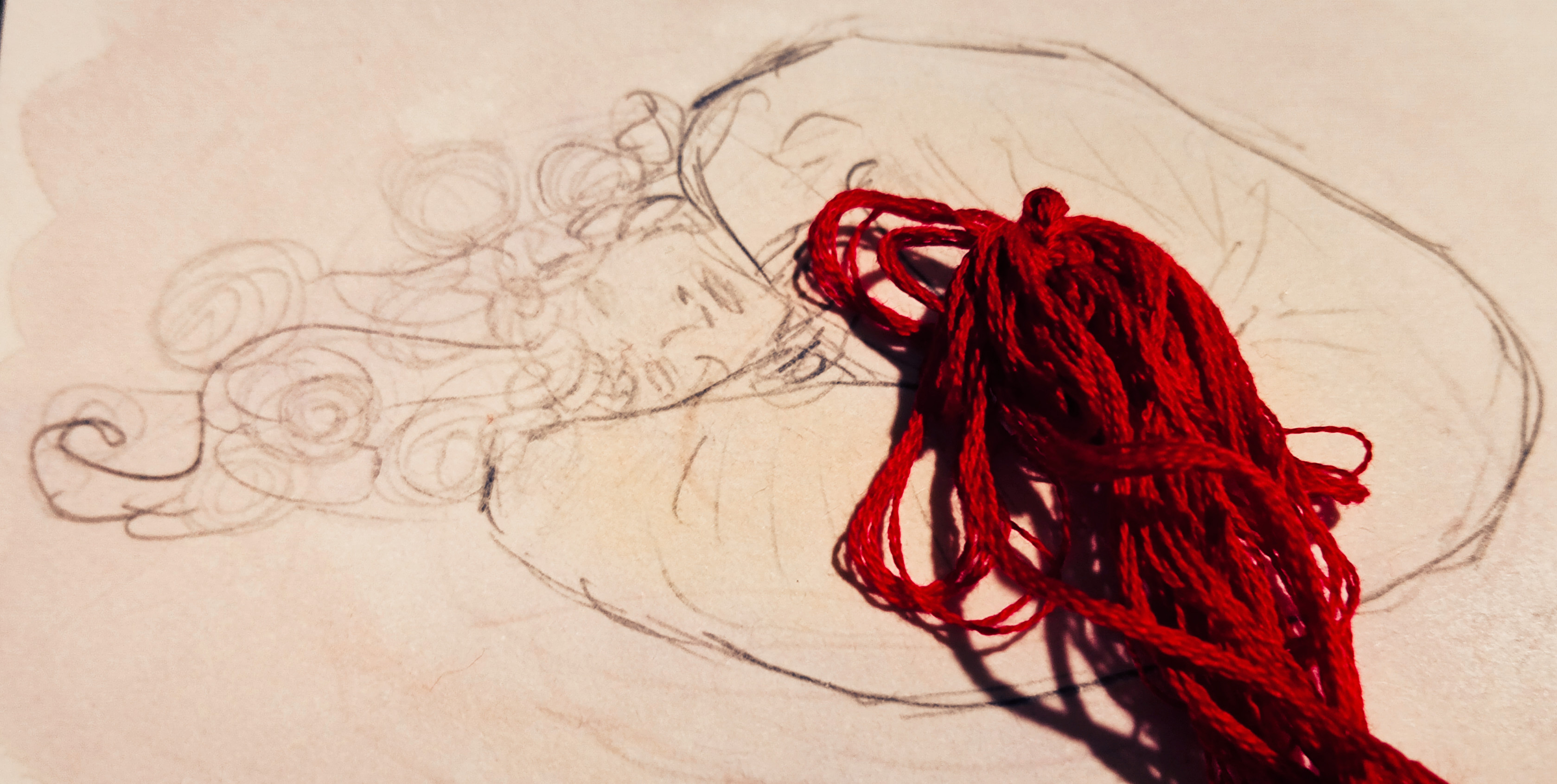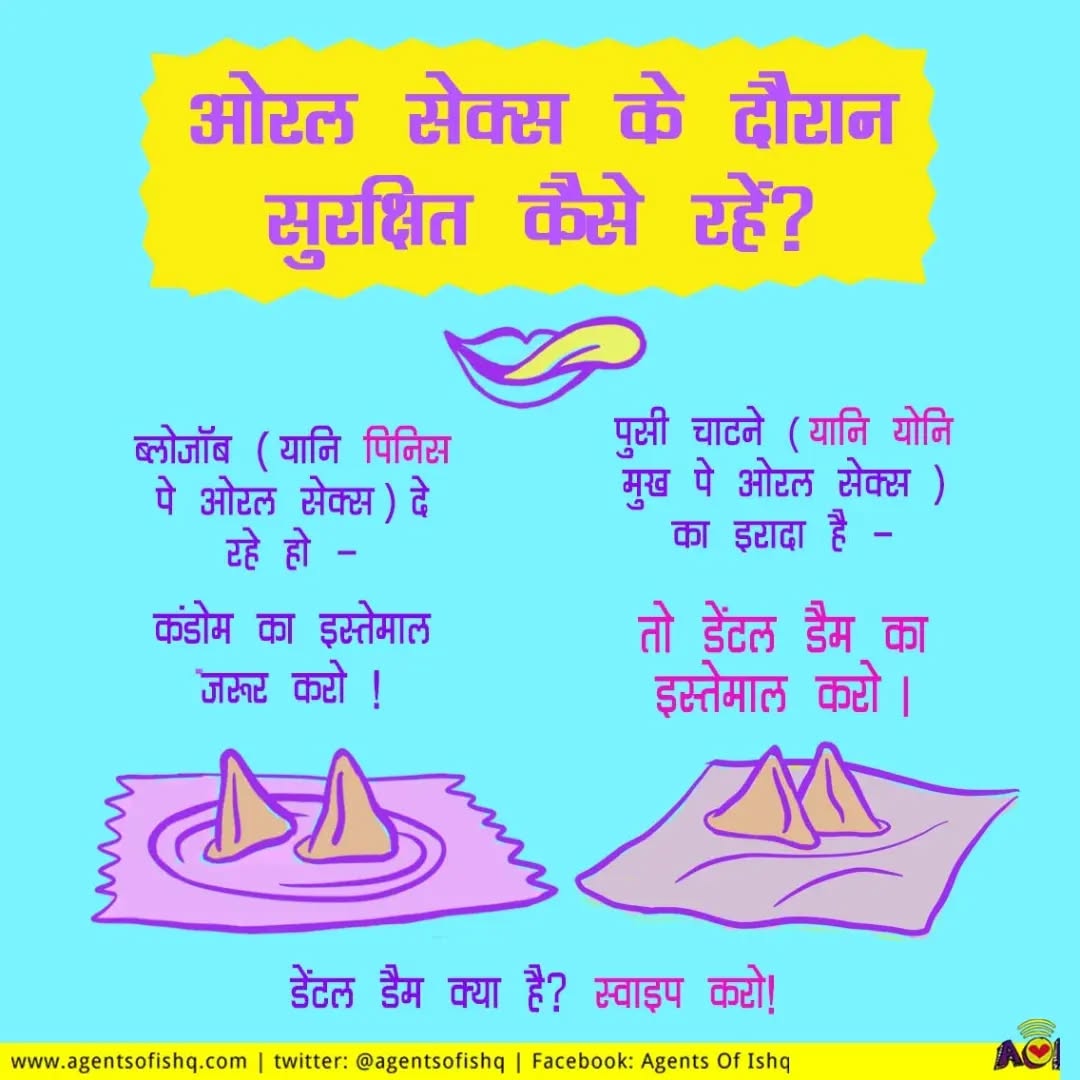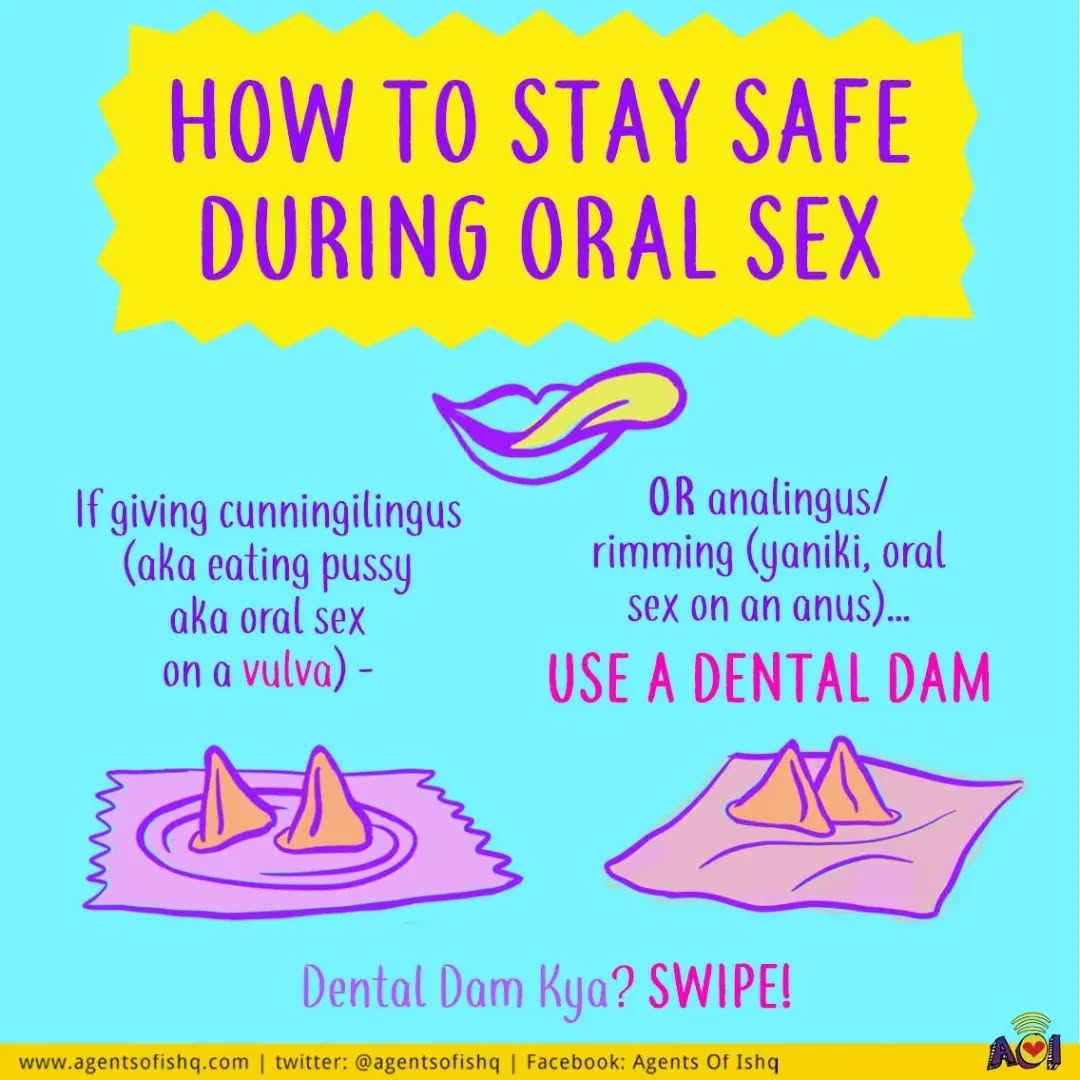When we talk of changes in female bodies, it’s usually about puberty and menstruation. But hardly anyone talks about bodily changes as we grow older – not even doctors. So we’re often clueless about what to expect. But the relationship with our bodies and how they change is a life-long one.So, here is some gyaan about sex and our bodies as we grow older.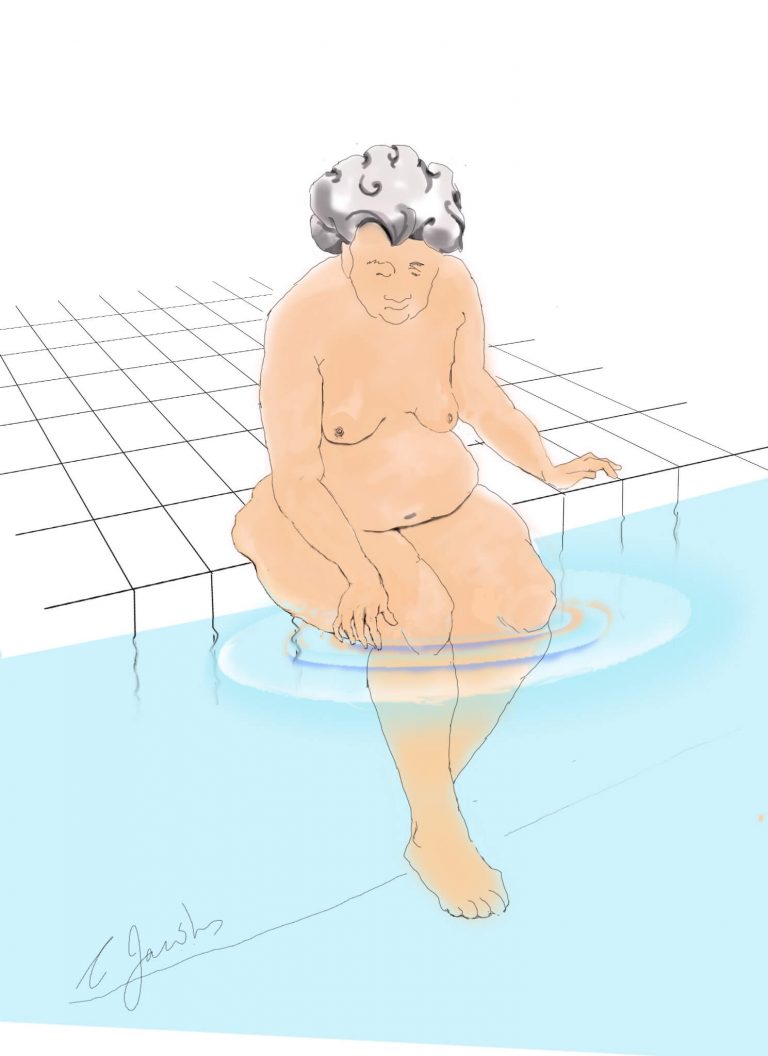 What is perimenopause and menopause?For people with uteruses, menopause is when your periods come to a full stop, and your ovaries don’t produce eggs anymore. But this doesn’t happen abruptly. There is a run-up to it called perimenopause. It usually begins around the mid-40s and lasts around 4-5 years.What happens:
What is perimenopause and menopause?For people with uteruses, menopause is when your periods come to a full stop, and your ovaries don’t produce eggs anymore. But this doesn’t happen abruptly. There is a run-up to it called perimenopause. It usually begins around the mid-40s and lasts around 4-5 years.What happens: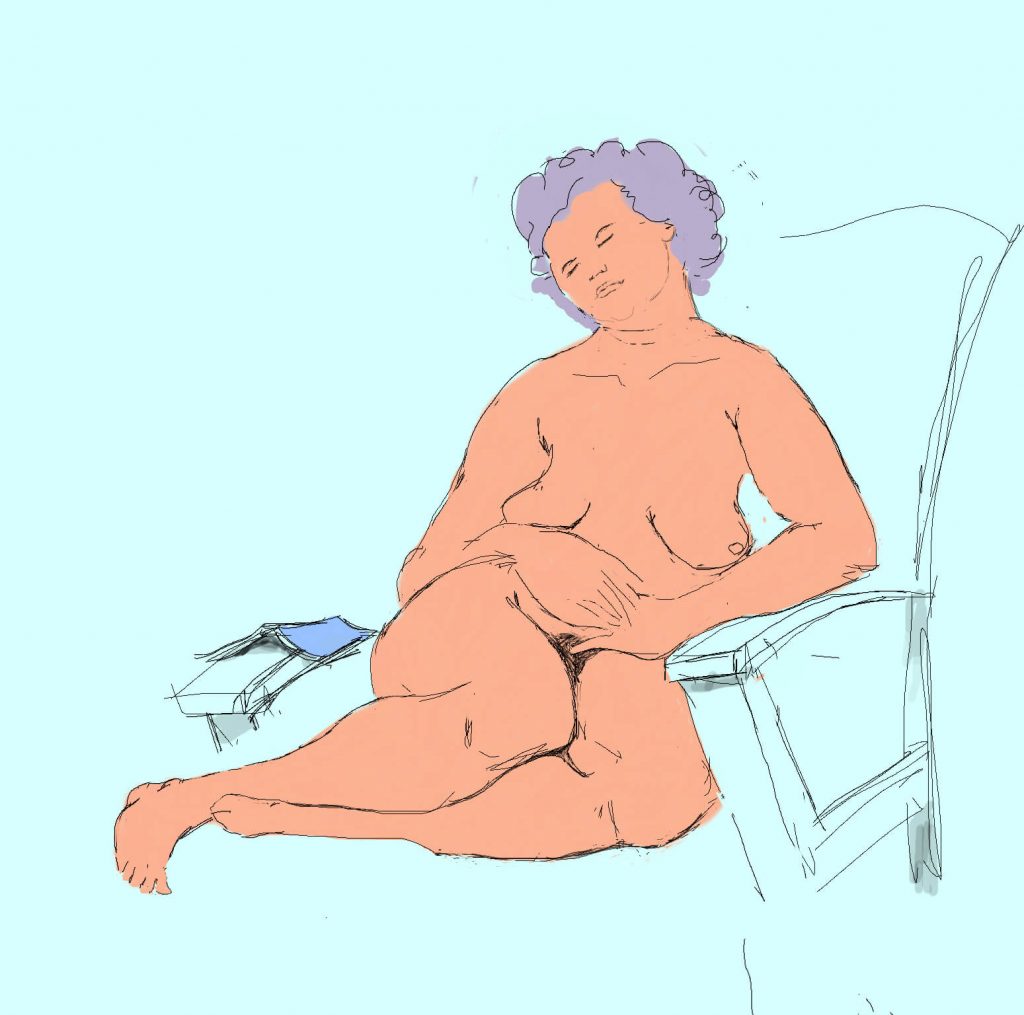 How do we feel about this?In a world where everyone is always obsessed with staying young, wouldn’t we be anxious about becoming older? The changes in our skin and outer bodies may often worry us more than what is happening inside our bodies and minds. We have too few conversations about these changes, and it’s even rarer to be able to compare our older bodies with others and feel like, accha, this is normal.Greeshma, 51, spends her evenings at the gym. It makes her feel better, both because of the exercise rush and because she feels happier about her body. It also helps with her knee problem, which prompted her to exercise rigorously.Meena, 58, went through a period of feeling overwhelmed by everything happening around her. Her children seemed too busy, and her husband distant. “It was just really lonely,” Meena says. It was worse if hot flashes happened when she was already irritable or anxious. But what helped was to figure out a rhythm for herself – she joined a dance class, and spent every morning at a laughter club in a park. It helps to remember that there’s no need to suffer alone. You can even join groups like the Indian Menopause Society (yes, there is such a club), which organises events and makes it easier to meet other women who be going through the same thing as you.Ritika, 49, was told by her friends that she’d have her best sex in her 30s, before hitting a depressing dive into dry spells of no sex in her 40s. Has the prediction come true? “I don’t have sex as often as I used to, but when I do it’s as good as it used to be.” How come? Apart from using a lubricant and a vibrator often, Ritika is more confident, insisting her partner prolong foreplay. It’s great, she says, because the long foreplay has helped her discover new ways she likes being touched, and going slow gets her more turned on than ever.The world tends to equate youth with sexual attractiveness, and freedom, but we are sexual beings all our lives – we just think and feel differently about sex and pleasure.The best is right here.
How do we feel about this?In a world where everyone is always obsessed with staying young, wouldn’t we be anxious about becoming older? The changes in our skin and outer bodies may often worry us more than what is happening inside our bodies and minds. We have too few conversations about these changes, and it’s even rarer to be able to compare our older bodies with others and feel like, accha, this is normal.Greeshma, 51, spends her evenings at the gym. It makes her feel better, both because of the exercise rush and because she feels happier about her body. It also helps with her knee problem, which prompted her to exercise rigorously.Meena, 58, went through a period of feeling overwhelmed by everything happening around her. Her children seemed too busy, and her husband distant. “It was just really lonely,” Meena says. It was worse if hot flashes happened when she was already irritable or anxious. But what helped was to figure out a rhythm for herself – she joined a dance class, and spent every morning at a laughter club in a park. It helps to remember that there’s no need to suffer alone. You can even join groups like the Indian Menopause Society (yes, there is such a club), which organises events and makes it easier to meet other women who be going through the same thing as you.Ritika, 49, was told by her friends that she’d have her best sex in her 30s, before hitting a depressing dive into dry spells of no sex in her 40s. Has the prediction come true? “I don’t have sex as often as I used to, but when I do it’s as good as it used to be.” How come? Apart from using a lubricant and a vibrator often, Ritika is more confident, insisting her partner prolong foreplay. It’s great, she says, because the long foreplay has helped her discover new ways she likes being touched, and going slow gets her more turned on than ever.The world tends to equate youth with sexual attractiveness, and freedom, but we are sexual beings all our lives – we just think and feel differently about sex and pleasure.The best is right here.
 What is perimenopause and menopause?For people with uteruses, menopause is when your periods come to a full stop, and your ovaries don’t produce eggs anymore. But this doesn’t happen abruptly. There is a run-up to it called perimenopause. It usually begins around the mid-40s and lasts around 4-5 years.What happens:
What is perimenopause and menopause?For people with uteruses, menopause is when your periods come to a full stop, and your ovaries don’t produce eggs anymore. But this doesn’t happen abruptly. There is a run-up to it called perimenopause. It usually begins around the mid-40s and lasts around 4-5 years.What happens:- Your periods get irregular: they may last from 4 days to 2 weeks, or even skip a month. A study found a drop in the age when women hit menopause in India – 4 percent of women hit menopause between 29 and 34 years, and 8 percent between 35 and 39.
- Levels of the hormone oestrogen drop. This can cause mood swings, hot flashes, disturbed sleep, tiredness and a reduced sex drive. But the symptoms are not uniform for everyone. For some, menopause can be a smooth boat ride into post-menopause.
- Lowered oestrogen means that the body stops making as much collagen. This can lead to wrinkles and sagging skin – visible signs of ageing.
- Ageing can reduce your sex drive.
- With menopause, vaginas get drier and their tissues get thinner. Its most common symptoms are soreness and itching, or even bleeding after sex. So your lubricant can become your best friend.
- You have had early menopause or your uterus or ovaries removed.
- You are a trans-woman taking hormone therapy. Recent studies show that hormone therapy places trans-women at a much higher risk of developing blood clots, heart attacks and strokes.
- Increasing your calcium intake and eating well (more leafy vegetables)
- Weight-bearing and resistance exercises help build and maintain muscle and bone density.
- Your breasts become smaller and start to lose fat and tissue.
- The tissue supporting them becomes less elastic, making them sag.
- The areola (area surrounding the nipple) can become smaller and may even sometimes disappear.
- Lumps are common, and mostly they’re non-cancerous cysts. But this is when women need to know how to do a breast self-examination, and it’s best to get lumps checked out, because the risk of getting breast cancer increases with age.
 How do we feel about this?In a world where everyone is always obsessed with staying young, wouldn’t we be anxious about becoming older? The changes in our skin and outer bodies may often worry us more than what is happening inside our bodies and minds. We have too few conversations about these changes, and it’s even rarer to be able to compare our older bodies with others and feel like, accha, this is normal.Greeshma, 51, spends her evenings at the gym. It makes her feel better, both because of the exercise rush and because she feels happier about her body. It also helps with her knee problem, which prompted her to exercise rigorously.Meena, 58, went through a period of feeling overwhelmed by everything happening around her. Her children seemed too busy, and her husband distant. “It was just really lonely,” Meena says. It was worse if hot flashes happened when she was already irritable or anxious. But what helped was to figure out a rhythm for herself – she joined a dance class, and spent every morning at a laughter club in a park. It helps to remember that there’s no need to suffer alone. You can even join groups like the Indian Menopause Society (yes, there is such a club), which organises events and makes it easier to meet other women who be going through the same thing as you.Ritika, 49, was told by her friends that she’d have her best sex in her 30s, before hitting a depressing dive into dry spells of no sex in her 40s. Has the prediction come true? “I don’t have sex as often as I used to, but when I do it’s as good as it used to be.” How come? Apart from using a lubricant and a vibrator often, Ritika is more confident, insisting her partner prolong foreplay. It’s great, she says, because the long foreplay has helped her discover new ways she likes being touched, and going slow gets her more turned on than ever.The world tends to equate youth with sexual attractiveness, and freedom, but we are sexual beings all our lives – we just think and feel differently about sex and pleasure.The best is right here.
How do we feel about this?In a world where everyone is always obsessed with staying young, wouldn’t we be anxious about becoming older? The changes in our skin and outer bodies may often worry us more than what is happening inside our bodies and minds. We have too few conversations about these changes, and it’s even rarer to be able to compare our older bodies with others and feel like, accha, this is normal.Greeshma, 51, spends her evenings at the gym. It makes her feel better, both because of the exercise rush and because she feels happier about her body. It also helps with her knee problem, which prompted her to exercise rigorously.Meena, 58, went through a period of feeling overwhelmed by everything happening around her. Her children seemed too busy, and her husband distant. “It was just really lonely,” Meena says. It was worse if hot flashes happened when she was already irritable or anxious. But what helped was to figure out a rhythm for herself – she joined a dance class, and spent every morning at a laughter club in a park. It helps to remember that there’s no need to suffer alone. You can even join groups like the Indian Menopause Society (yes, there is such a club), which organises events and makes it easier to meet other women who be going through the same thing as you.Ritika, 49, was told by her friends that she’d have her best sex in her 30s, before hitting a depressing dive into dry spells of no sex in her 40s. Has the prediction come true? “I don’t have sex as often as I used to, but when I do it’s as good as it used to be.” How come? Apart from using a lubricant and a vibrator often, Ritika is more confident, insisting her partner prolong foreplay. It’s great, she says, because the long foreplay has helped her discover new ways she likes being touched, and going slow gets her more turned on than ever.The world tends to equate youth with sexual attractiveness, and freedom, but we are sexual beings all our lives – we just think and feel differently about sex and pleasure.The best is right here.

